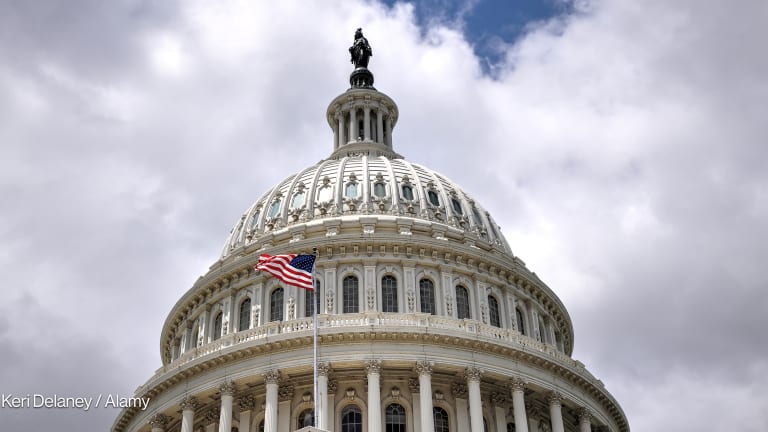
President Joe Biden on Friday proposed a $6.8 billion boost in U.S. international affairs spending for fiscal year 2022, recommending a total budget of $63.5 billion. The budget request is a 12% increase from 2021 spending.
“After four years of neglect, the discretionary request significantly increases contributions to climate initiatives, makes needed investments in global health security, increases economic and security assistance to Central America, reinvigorates the diplomatic and development workforce, and meets the Nation’s international obligations, all while supporting efforts to advance racial equity and inclusion in foreign assistance and within foreign affairs agencies,” the overview of the request reads.
The U.S. development community has been watching closely to see if the Biden administration’s rhetoric in support of renewed global engagement would translate into a major boost for U.S. development and diplomatic spending. This long-awaited blueprint calls for significantly more resources — but it falls short of what some aid advocates say is needed to respond to COVID-19, tackle climate change, and restore U.S. international engagement.
Of the proposed international affairs spending, $58.4 billion would go to the State Department and U.S. Agency for International Development — a 10% increase from the previous year.
“The Administration’s first budget proposal to tackle our global needs is smart and serious,” said Liz Schrayer, president and CEO at the U.S. Global Leadership Coalition, in a statement.
USGLC previously surveyed more than two dozen foreign policy and national security experts and determined that $14 billion in additional U.S. funding is needed for the international affairs budget.
Some are likely to push for more than the increase that the administration has proposed. Last month, a group of U.S. Democratic lawmakers released a proposal that calls for $12 billion in additional foreign affairs funding. While there are some similarities in priorities, Biden’s proposed budget doesn’t quite match the lawmakers’ ambitious plan.
Schrayer said that the level proposed by Biden’s administration Friday should be “the floor in all Fiscal Year 2022 negotiations.”
The administration’s proposal isn’t an across-the-board increase but is targeted and “clearly reflects its priorities,” said Conor Savoy, executive director at the Modernizing Foreign Assistance Network.
While the proposed increase may be somewhat incremental, the administration is clearly working to balance priorities with domestic spending even as it is “laying down a mark” showing that it wants to spend more on the foreign affairs budget, he said.
Without more details, it’s hard to know whether the administration will be bold with some of its spending decisions, even if the overall increase is perhaps lower than some had hoped, Savoy said.
The White House will release its full budget request in the next couple of months. While members of Congress will likely discuss and adjust various aspects of the president’s proposal, they will not be faced with the task of rejecting 20%-30% cuts as they have in recent years.
As Congress takes up discussing the budget, it will be with new leadership on the key appropriations subcommittees. It will also be the first time that Sen. Chris Coons and Rep. Barbara Lee, both development champions, are new in their posts.
Among the most notable items included in the budget proposal are:
• $10 billion for global health programs, including $1 billion for global health security.
• $10 billion for humanitarian assistance.
• $2.5 billion for international climate programs, including $1.2 billion for the Green Climate Fund and $485 million for other multilateral initiatives, some of which will focus on adaptation.
• $861 million to address the root causes of migration in Central America, part of a $4 billion four-year commitment.
• $3.3 billion for Treasury Department international programs — a 73% increase and an indication of support for increased multilateral engagement and funding.
• Nearly $2 billion for United Nations peacekeeping efforts, including $300 million to begin paying arrears.
There are also some policy priorities outlined in the budget that don’t yet have specific numbers attached to them:
• Funding the World Health Organization, the U.N. Population Fund, and the UN Refugee Agency.
• Increasing the size and diversity of the State Department and USAID foreign service.
• Countering authoritarianism — particularly Russian and Chinese influence — and supporting human rights and democratic values.
• Funding for Middle East partners, including the U.N. Relief and Works Agency for Palestine Refugees in the Near East.









